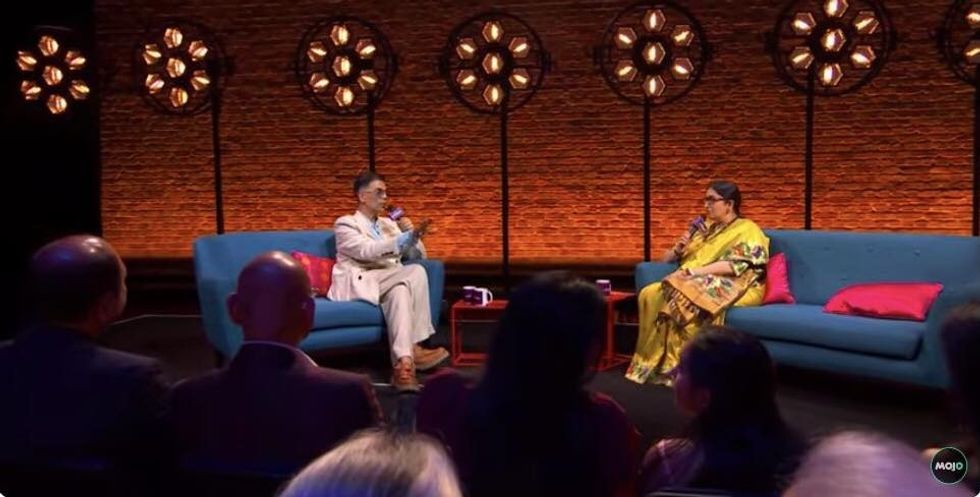by LAUREN CODLING
WESTERN retailers need to ensure garment workers are treated with “fairness and dignity”, the author of a new report has said, as it emerged employees in Indian factories making clothes for export are paid 11p an hour.
Tainted Garments, a new report on the conditions of work for women and girls in India’s garment sector, provides an insight into the daily life of workers.
Low wages, a lack of medical care when workers suffer a work-related injury, and hazardous working conditions have all been exposed in the study.
Often working from home, employees were typically involved in putting the “finishing touches” onto the designs, such as embroidery, tasselling, fringing, beadwork, and buttons.
The intricate detail of the work can lead to chronic illness, including back pain, diminishing
eye sight, and body aches, the report said.
Siddharth Kara is the author of the study. The academic told Eastern Eye: “Just because a worker may be separated by a few thousand miles and (there are) a few layers in a supply chain from the executives of a company, it does not mean that those workers should not be considered as equal employees of the company and treated accordingly,” he said.
In other key findings, the report found one in 10 people in northern India were trapped in forced labour while an estimated six per cent were in bonded labour, where an individual is made to work to pay off debts.
It also stated none of the workers belonged to a trade union or had a written agreement for their work. This would then contribute to the exploitative nature of the work, leaving workers with no way of seeking compensation or support if they experienced unfair or abusive behaviour.
For instance, many of the workers (35.5 per cent) claimed they had experienced a delay in receiving their wages, by a few weeks or months.
Kara, a lecturer at the University of California, said this could cause “severe harm” to informal workers and their families.
“When the already depressed wages are delayed or go unpaid, the family unit suffers
even more, putting addition pressure on children to work, or for women and children to accept exploitative labour conditions simply to ensure base survival,” he explained.
Of the 1,452 workers interviewed, 17.3 per cent documented were children, more than half of whom did not attend school.
Of the children they interviewed in northern India, many of the child labourers who had attended school were forced to drop out when their families could no longer afford the fees.
Researchers confirmed they had witnessed dozens of children under 10 working alongside their mothers.
According to children’s charity UNICEF, more than one billion children are affected either directly or indirectly through global supply chains.
A UNICEF spokesperson told Eastern Eye: “We urge all businesses to meet their responsibility and respect children’s right”.
Although no Western brands were specifically named in the report, it was stressed that
almost all the individuals documented in this project were working on garments bound for export to major brands in the United States and the European Union.
When approached by Eastern Eye on the report’s findings, a H&M spokesperson said every garment worker should earn enough wages to satisfy the basic needs of workers and their families as well as providing some discretionary income.
Agreeing that wages in the textile and garment industry are “too low”, the spokesperson said: “As an industry, we have a shared responsibility to ensure that jobs created in developing countries lead to better lives for the people and communities involved.”
“Change will not happen overnight, but gradually we see positive change and we are optimistic about the future. We want wages in the textile and garment industry to increase and all workers to earn a fair living wage, which is why we are continuing to work closely with industry stakeholders and partners to agree how to achieve a sustainable change.”
Other major retailers, such as Gap and M&S, did not respond for comment.
Kara said he hoped the findings would motivate brands to ensure transparency and the dignity of work all the way through their supply chains.
“Ensuring fair wages and formalising the home based garment sector with employment agreements and unionisation would empower millions of otherwise heavily exploited women and allow their children to go to school rather than sit alongside them embroidering and sewing the clothes we wear every day,” he said.
















 Karan Johar and Smriti Irani
Karan Johar and Smriti Irani
